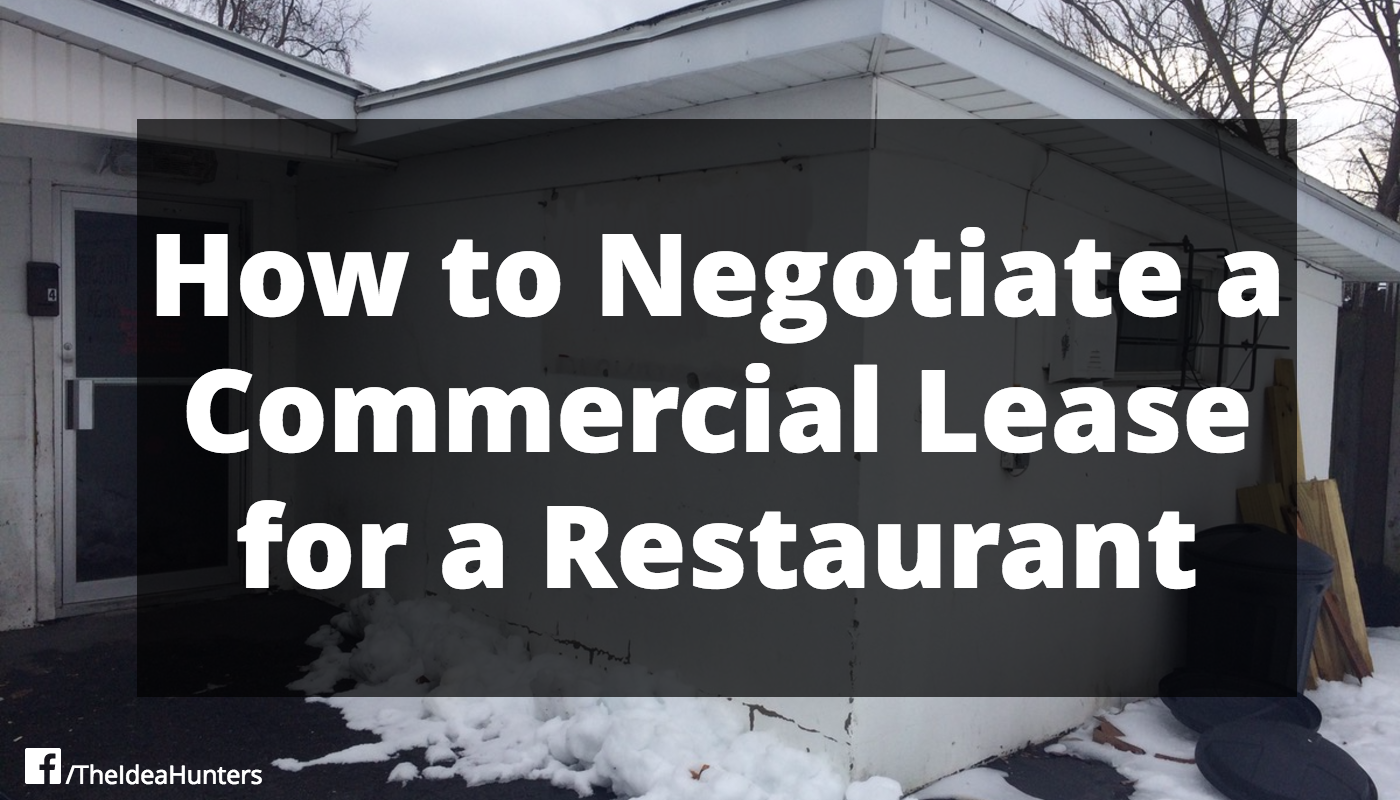I worked in several restaurants as a line cook on and off for a few years before getting licensed as a commercial real estate agent.
From my experience working in restaurants, I know how essential it is to have a commercial kitchen and restaurant space that sets the business up for success, not failure.
As many restaurant owners would agree, it’s always better to prevent a problem than pay for it later.
Below I’ll share useful commercial real estate advice to help owners avoid a rash decision that ends up costing a lot in the long run.
Lease Clauses that Protect the Restaurant Owner
Restaurant owners may be surprised to learn that there are several different types of clauses that can be written into a lease agreement that help protect the business in the event of a change in the situation, such as the restaurant failing to generate enough revenue.
Clauses that might be added to the lease include:
- Subleasing – Owners can sublet the space to another restaurant
- Break – Owners can end the lease early
- Cotenancy – If the commercial space is in a mall with an “anchor” tenant that attracts a majority of traffic to the location (e.g. a Home Depot located in the same strip mall alongside smaller retail shops and restaurants would be considered an anchor tenant), this clause allows restaurant owners to break the lease if the anchor tenant leaves and is not replaced within a certain timeframe
- Exclusivity – This clause prevents a landlord from leasing commercial space in the same premises to a restaurant’s direct competitors
Negotiate a Lower Monthly Rent Payment
Check how long a restaurant space has been sitting on the market vacant and producing no income for the owner.
If it has been longer than a few months and if current economic conditions are not good, then your agent may be able to negotiate on your behalf a lower monthly rent.
Your tenant agent should be able to come up with some creative ways of doing this, such as:
- A prorated lease that offers lower rent for the lease’s first few months with an increase after a set period of time in operation.
- Free usage of the property until the restaurant’s “soft” open for friends and family before the official open
- A free month or two of rent at the beginning of the commercial lease
What Happens If You Don’t Pay Your Lease?
When a restaurant owner cannot pay their monthly lease, this is what’s known as “defaulting” on payments. While not a pleasant subject, it’s still worthwhile to ask the landlord what would happen next.
Some landlords may throw the restaurant into lockdown, while others may start eviction proceedings.
Get an Inspection Done While Negotiating the Lease
A restaurant inspection ensures the restaurant is in compliance with codes such as fire safety, health/sanitation, and other safety checks in accordance with local and state laws.
Also, any broken or items in need of repair or replacements should also be noted before moving in.
The lessees can ask the landlord to foot the bill for these, although it is up to the landlord’s discretion as to what they’ll pay for.
Typically, if a requested repair were to “stay in the building” after a lessee vacates the property, such as electric or plumbing, the landlord would most likely take responsibility for these costs, or simply take it off the monthly rent.
Also, any agreements made between the landlord and lessee must be in writing. Verbal or handshake deals would not hold up under the law.
Don’t Use Your Name on the Lease
Instead, use the name of your corporation (such as an LLC). I recommend that restaurant owners consult their attorney for more in-depth advice on why this is a good idea.
Ready to sign a lease on your restaurant dream?
If you are a restaurant or retail owner looking to lease commercial space, send me an email at jkim(at)pyramidbrokerage(dot)com and I will help you achieve your commercial real estate goal and transform your restaurant dream into a culinary reality.
About James K. Kim
I am a former archery technician turned freelance digital marketer. I help people build profitable businesses online.
You can learn more about how to build a profitable online business at JamesKKimMarketing.com.
In my free time I enjoy the ancient sport of archery, sport crossbow target shooting, deep sea fishing, day hiking, recreational kayaking, high intensity weight training, ice hockey, and outdoor cooking.
Let's connect on social media:
Facebook • Twitter • Linkedin • Youtube • Pinterest • Instagram •







